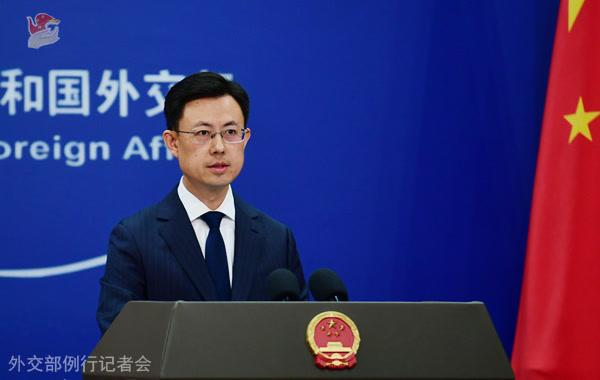On July 21, 2025, China’s Ministry of Foreign Affairs confirmed that Chenyue Mao, a Shanghai-born managing director at Wells Fargo, has been barred from leaving the country due to her involvement in an ongoing criminal investigation. The announcement, made by ministry spokesperson Guo Jiakun during a press briefing in Beijing, has sent ripples through the international business community, raising fresh concerns about the risks of operating in China amid heightened U.S.-China tensions.
Mao, a U.S. citizen based in Atlanta, has been with Wells Fargo for over a decade, leading the bank’s international factoring business, which facilitates cross-border trade financing. According to her LinkedIn profile, she was recently elected chair of FCI, a global organization for factoring and trade financing, underscoring her prominence in the industry. However, Chinese authorities have imposed an exit ban on her, citing her obligation to cooperate with an unspecified criminal case. Guo Jiakun emphasized that “everyone in China, whether Chinese or foreign, must abide by Chinese laws,” but provided no details on the nature of the allegations or the expected duration of the ban.
Wells Fargo, headquartered in San Francisco, has responded cautiously, stating it is “working through the appropriate channels” to secure Mao’s return to the United States. In a move reflecting the gravity of the situation, the bank has reportedly suspended all employee travel to China, a decision that underscores growing unease among multinational corporations about the safety of their staff in the country.
A Pattern of Exit Bans Amid Geopolitical Tensions
Mao’s case is not an isolated incident. China has increasingly employed exit bans on foreign nationals, often without transparent justification, as a tool in civil disputes, regulatory probes, or criminal investigations. In recent years, executives from firms like Nomura Holdings, Kroll, and UBS have faced similar restrictions, amplifying fears among Western companies about the unpredictability of China’s legal environment. The U.S. Embassy in Beijing has expressed concern, noting that such “arbitrary exit bans” strain bilateral relations and urging Chinese authorities to allow affected U.S. citizens to return home.
The timing of Mao’s exit ban is particularly notable, coinciding with escalating trade disputes between the U.S. and China under the Trump administration’s aggressive tariff policies. Some experts, like Simona Grano from the University of Zurich, suggest that such measures may serve as political leverage, signaling China’s willingness to use exit bans as a form of diplomatic pressure. “These are political, tit-for-tat measures,” Grano told The Washington Post. “It wouldn’t be the first time they use these kinds of measures to send political signaling or even to blackmail or coerce a country.”
Implications for Foreign Businesses in China
The lack of transparency surrounding Mao’s case has heightened anxiety among foreign executives, particularly those of Chinese descent or with dual nationality, who may face heightened scrutiny. Dale Buckner, CEO of Global Guardian, advised U.S. companies to “carefully vet” employees traveling to China, warning that individuals with government ties or involvement in sensitive industries like technology or defense are especially vulnerable. This sentiment is echoed by industry observers who fear that the case could deter corporate travel to China, a critical market despite its economic challenges, including a real estate crash and regulatory hurdles.
China’s Foreign Ministry has sought to downplay the incident, with Guo Jiakun asserting that it is an “individual judicial case” and that China remains open to foreign visitors and businesses. However, the absence of clear details about the allegations against Mao, combined with the broader trend of exit bans, undermines Beijing’s assurances. As one Hong Kong-based banker told Reuters, “We do so much business in China and travel there so much, we can’t afford not to. I would hope this is just a one-off.”
A Chilling Effect on U.S.-China Business Relations
The exit ban on Mao comes at a time when foreign business interest in China is already waning, driven by economic slowdown, regulatory unpredictability, and geopolitical friction. Wells Fargo, one of six global banks dominating dollar-denominated payment processing for China’s trade, operates modestly in the country with branches in Beijing and Shanghai. Mao’s role in facilitating international transactions makes her detention particularly alarming for the financial sector.
Critics argue that China must provide greater clarity on the circumstances under which exit bans are imposed to maintain its appeal as a business destination. “China has a small window,” said an analyst quoted by CNN. “Now is the time to explain the circumstances where someone can be placed on an exit ban. China really needs to step up.”
Looking Ahead
As Wells Fargo and U.S. authorities navigate this delicate situation, Mao’s case serves as a stark reminder of the risks faced by executives traveling to China. For now, she remains in limbo, unable to return to her home in Alpharetta, Georgia, where she lives in an upscale neighborhood near Atlanta. An automated email response from Mao indicates she is “traveling internationally on business,” a poignant detail given her inability to leave China.
The incident has prompted calls for greater caution among U.S. companies, with some questioning whether the benefits of doing business in China outweigh the risks. As geopolitical tensions continue to simmer, Mao’s plight may signal a broader shift in how Western firms approach the Chinese market. For now, the international business community watches closely, hoping for a resolution that allows Mao to return home—and for clearer rules to prevent such incidents in the future.
